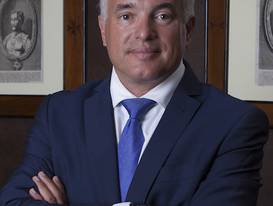
Tunisia: Strategic area for PE investors
The North African country will continue to be a very important geographical area for PE funds investing in the Maghreb region, says Albert Alsina, CEO & Managing Partner, Mediterrania Capital Partners

The North African country will continue to be a very important geographical area for PE funds investing in the Maghreb region, says Albert Alsina, CEO & Managing Partner, Mediterrania Capital Partners

Early this year, President Barack Obama signed into law the bipartisan Electrify Africa Act of 2015, essentially codifying the US President’s Power Africa Initiative that he began in 2013.
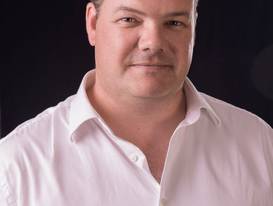
According to the latest Morningstar South African Rating Analysis of unit trusts, Foord Unit Trusts has been the country’s top asset manager, based on both equal-weighted and asset-weighted ratings. AGF speaks with Nick Curtin of Foord, who is responsible for the firm’s institutional investor relationships.
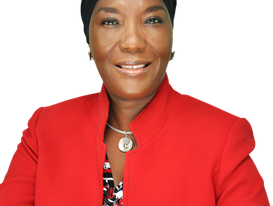
Agriculture, mining and services are key to a more stable and prosperous future in Nigeria, says Bolatito Ajibode, Head, Conglomerates & Industrials, Stanbic IBTC
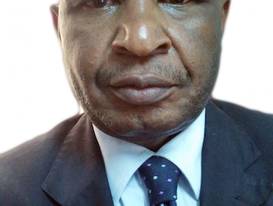
AGF’s Anna Lyudvig speaks with David Kitawi Mwakitele, Director in charge of Business Development and Strategy at Seriani Asset Managers, on the state of the Kenyan pension fund industry
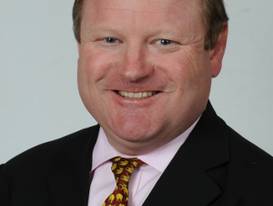
Whilst the private sector has spent the last six years reducing costs, improving efficiencies and boosting their competitiveness, Government has been making little headway in cutting its own costs. In the early years of the Unity Government, budgets were set on a cash receipt basis with no recourse to borrowing. Since 2013 however there has been a growing issuance of treasury bills initially as a means to repay private sector debts, but then to cover the historical debts of the Reserve Bank and latterly ZAMCO. With rapidly declining tax receipts and no simultaneous spending cuts, Government have been issuing treasury bills to the banks in order to fund itself and pay civil service salaries. The net result is that as at April, treasury bills now represent 30% of total bank deposits (source: RBZ) having been below 10% only one year ago.

For investors looking at African fixed income opportunities, Angola might not be on the investment radar. The fixed income market in the Africa's second largest crude exporter remains at an early stage of development with only a handful of instruments trading. AGF looks closely to identify investment opportunities and risks

Following the success of its flagship trade finance fund, Barak Fund Management has recently announced the launch of additional investment vehicles to fulfil the needs of their current investors. AGF sits down with Giles Hedley, Investor Relations Officer, to learn about new funds and opportunities in the trade finance space in Sub-Saharan Africa

SAVCA spoke to Justin Stanford, co-Founder and MD of the 4Di Capital, about the state of venture capital in South Africa, and the outlook for deal-making and fundraising
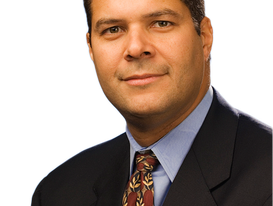
For Emerging Capital Partners’ (ECP) co-Founder, Managing Director and co-Chief Executive Hurley Doddy, there is no lack of opportunity in Africa and no oversupply of capital. With 16 years of experience investing in Africa, the Pan-African private equity firm has raised over $2bn for investment across the African continent, has made 62 investments and completed 39 exits.

The South African Venture Capital (VC) industry shows an encouraging rise in the number of new fund managers, an increase in deal flow and in profitable exits, while deal size declines. The South African venture capital (VC) industry now represents almost R2bn in assets under management, with healthy confidence levels that are commensurate with reported rising deal activity, a pleasing exits record and a significant increase in VC fund managers and industry professionals.
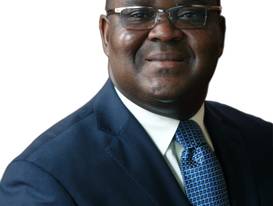
West Africa’s Regional Stock Exchange, the Bourse Régionale des Valeurs Mobilières de l’Afrique de l’Ouest (BRVM) came to New York in May this year to attract US investors on the market, promote investment in countries of the West African Economic and Monetary Union (WAEMU) and ensure maximum visibility for the BRVM and regional businesses on the world stage. AGF had a unique opportunity to meet with Edoh Kossi Amenounve, BRVM’s Chief Executive Officer, to discuss BRVM’s performance, its strategic plan and why the Exchange is initiating dialogue with US frontier funds.
A trailblazer for some of the less explored frontier markets, the World Bank’s International Finance Corporation (IFC) has invested $5.4bn in private equity funds in emerging markets since 2000. So what does it take for a private fund to partner with the IFC? Frontera’s Managing Editor Gavin Serkin asked Maria Kozloski, Chief Investment Officer of the IFC’s private equity funds group, in our latest.

Investors with a long term investment horizon may wish to consider investment opportunities in the development of commercial African real estate such as shopping malls, office blocks and warehouses. In frontier Africa (i.e. Africa outside of South Africa), new projects are typically delivered by developers at double digit yields (calculated as rent/total cost including land). And, importantly for international investors, these yields are in US dollars because rents in frontier Africa are normally paid in dollars or settled in local currency but referenced back to dollars. Applying leverage (we use a maximum of 60%), annual rental escalations of 3-4% and yield compression at time of exit, one can see that it is possible to achieve net compound investment returns in the high teens or more.